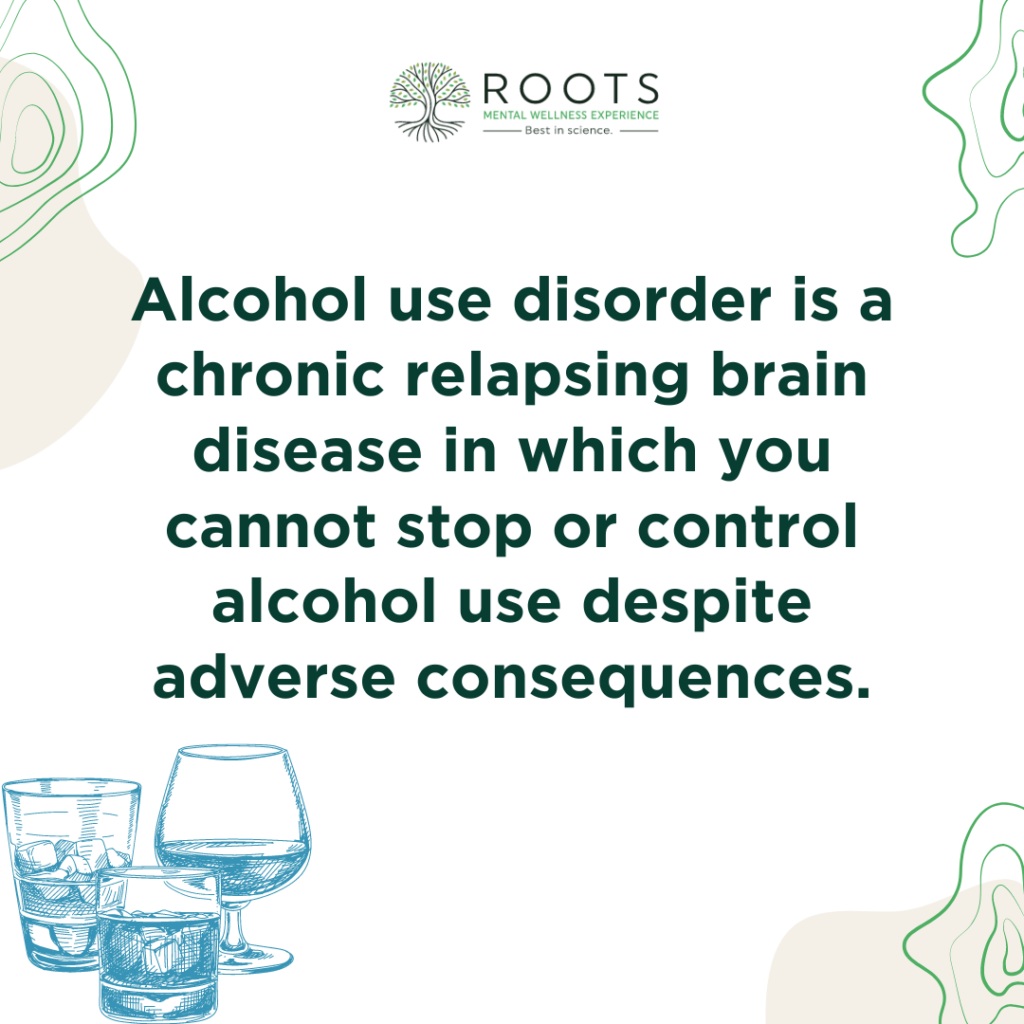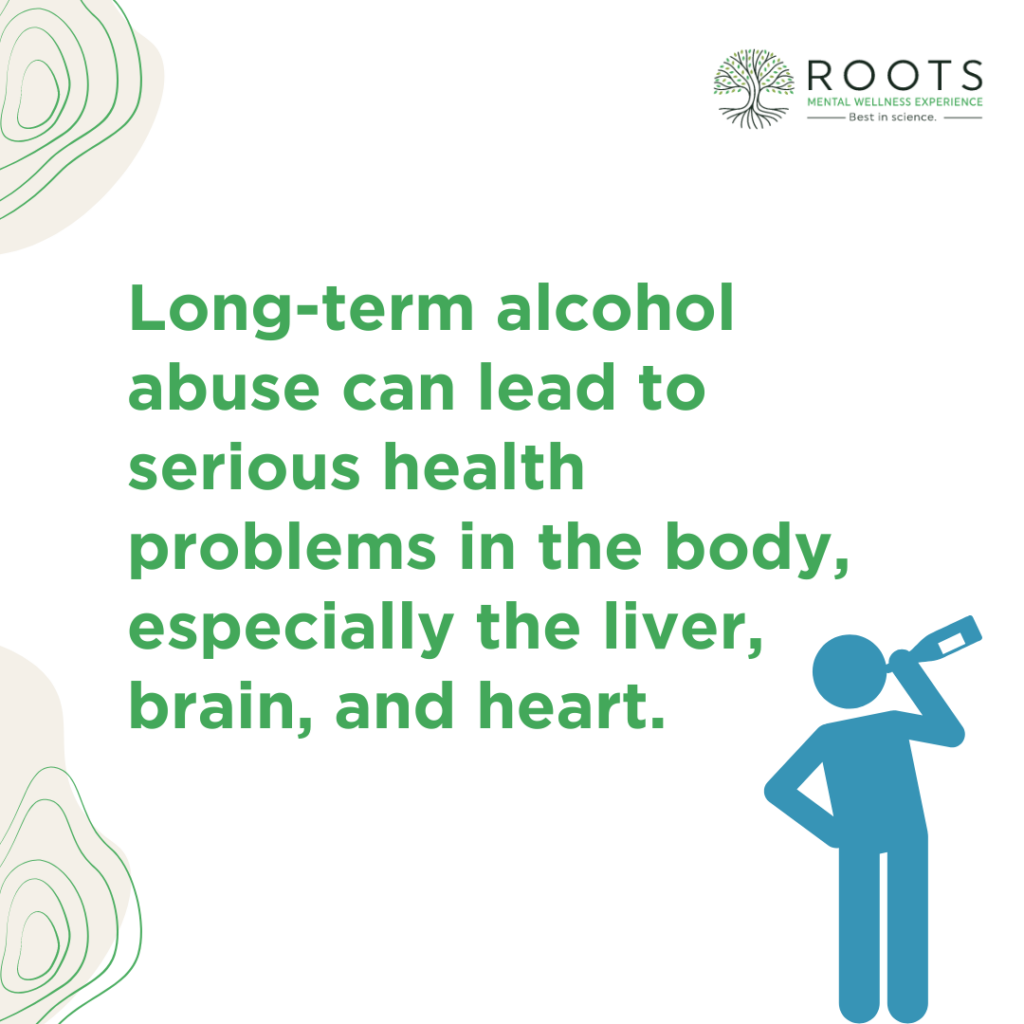In our society, alcohol is often seen as a way to unwind, celebrate, and cope with stress. However, when casual drinking transitions into dependency, it transforms into a debilitating disease known as alcohol addiction.
Alcohol addiction, or alcoholism, is a prevalent issue affecting millions worldwide. In the United States alone, 14.8 million people have an alcohol use disorder.
This widespread issue is often masked by the normalization of excessive drinking in various social settings, making it vital to recognize its symptoms. Early detection can make a significant difference, enabling individuals to seek help sooner and potentially prevent the severe health, social, and emotional consequences associated with chronic alcohol misuse.
In the following sections, we will share the symptoms of alcohol abuse, arming you with the knowledge to recognize this disease in its early stages. This understanding can help you lead a life free from dependency.

Definition of Alcoholism
The American Psychiatric Association describes alcohol use disorder as a chronic relapsing brain disease in which you cannot stop or control alcohol use despite adverse consequences.
Alcoholism is not defined by the type of alcohol consumed, how long the individual has been drinking, or even how much alcohol is consumed. Instead, it’s about the uncontrollable need for alcohol, despite experiencing negative repercussions.
Alcoholism is a progressive disease, which can start with occasional excessive drinking and gradually evolve into a more severe form of addiction.
How Much Alcohol is Too Much?
It’s tricky to determine how much alcohol is “too much,” as this can vary greatly from person to person. However, the Centers for Disease Control and Prevention provides general guidelines to understand what could be considered excessive or risky.
For men, heavy drinking is consuming 15 or more drinks per week. For women, it’s typically defined as consuming 8 or more weekly drinks.
A “drink” is defined as 14 grams (0.6 ounces) of pure alcohol, generally found in:
- 12 ounces of beer
- 5 ounces of wine
- 1.5 ounces of distilled spirits or liquor (e.g., vodka, whiskey, gin, etc.)
These are just averages, and alcohol affects everyone differently. Even drinking at these levels can be too much for some people, leading to significant health issues and increasing the risk of alcoholism.

Symptoms of Alcohol Abuse
Recognizing alcohol abuse signs is critical in getting help for yourself or a loved one. These symptoms can be physical, psychological, and behavioral.
Physical Symptoms of Alcoholism
Alcoholism can manifest in physical symptoms that range from mild to extreme, depending on the individual’s alcohol consumption and the duration of their addiction.
Long-term alcohol abuse can lead to serious health problems in the body, especially the liver, brain, and heart.
Common physical symptoms of alcoholism include:
- Blackouts or short-term memory loss
- Persistent hangovers
- Slurred speech and poor coordination
- Gastrointestinal problems, such as nausea, vomiting, or indigestion
- Weight loss or weight gain
- Redness of the face or broken blood vessels on the skin
- Unsteady walking
Chronic alcohol abuse can also lead to more serious long-term health effects, such as:
- Liver disease, including cirrhosis and alcoholic hepatitis
- Cardiovascular problems, such as high blood pressure and heart disease
- Brain damage, potentially leading to memory problems and cognitive deficits
- Increased risk of various types of cancer, including mouth, throat, liver, and breast cancer
Psychological Symptoms of Alcoholism
Alcoholism isn’t just a physical illness – it’s also a mental health disorder. It can mess with your mood and behavior and affect your cognitive difficulties. It can also trigger depression and anxiety.
Common psychological symptoms of alcohol use disorder include:
- Mood swings and increased irritability
- Anxiety and panic disorders
- Depression and feelings of hopelessness
- Difficulty concentrating or thinking clearly
- Memory problems
- Decreased interest in previously enjoyed activities
Behavioral Changes Associated with Alcohol Addiction
- Increased secrecy or lying about alcohol consumption
- Neglect of personal or professional responsibilities
- Drinking in risky situations, such as while driving or operating machinery
- Worsening performance at work or school
- Strained relationships due to alcohol use
- Prioritizing drinking over other activities and responsibilities

Progression of Alcoholism and Withdrawal Symptoms
Alcohol addiction doesn’t develop overnight. It’s a gradual process that starts with increased tolerance, dependence and eventually, addiction.
When someone repeatedly consumes alcohol, their body adapts to its presence, increasing tolerance. This means they need to consume more alcohol to achieve its usual effects. This increasing consumption can lead to physical and psychological dependence.
Dependence is characterized by the onset of withdrawal symptoms when alcohol consumption is abruptly reduced or stopped. Withdrawal symptoms can range from mild to severe, often depending on the length and severity of alcohol abuse.
Common symptoms of alcohol withdrawal include:
- Tremors or shaking
- Excessive sweating
- Rapid heart rate
- Nausea and vomiting
- Insomnia and disturbed sleep
- Anxiety or restlessness
Severe cases may experience delirium tremens (DTs), a life-threatening condition that can cause hallucinations, severe confusion, seizures, and high body temperature.
Alcohol Addiction Treatment
Overcoming alcohol addiction can be challenging, but recovery is achievable with the right support. Many treatment options are available, each tailored to an individual’s circumstances.
Treatment options for alcohol addiction often include:
- Detoxification: The first step in many treatment programs, detox involves managing physical withdrawal symptoms and achieving a stable, alcohol-free state.
- Therapy: Therapies such as cognitive-behavioral therapy, motivational enhancement therapy, and mindfulness-based therapy can help individuals change their attitudes and behaviors related to alcohol use, develop healthy coping strategies, and repair damaged relationships.
- Medications: Certain medications can help manage withdrawal symptoms, reduce cravings, and prevent relapse.
- Support groups: Alcoholics Anonymous (AA) provides a supportive community for individuals in alcohol addiction recovery.

Recognizing the symptoms of alcohol addiction is the first crucial step to healing. Whether these signs are physical, psychological, or behavioral, understanding them thoroughly can potentially save a life.
If you have an alcohol addiction, don’t lose hope. Help is available. Alcohol and drug treatment centers, like Roots Through Recovery, are equipped with specialized professionals ready to guide you through every stage of the recovery process.
If you’re experiencing the symptoms of alcohol abuse, we urge you to reach out and call us at 562-304-9592 and we’ll be glad to assist you.


